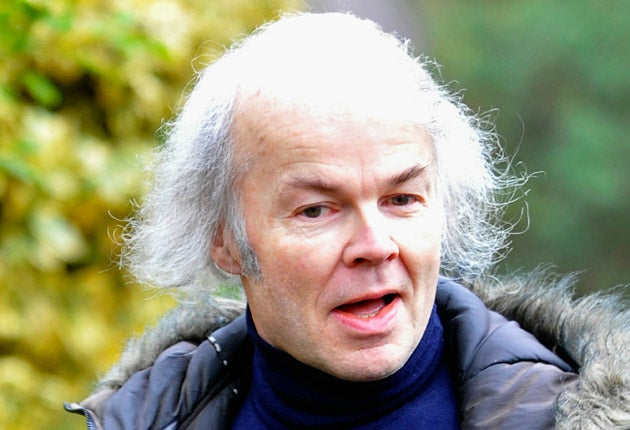Ian Burrell: Those who rush to demonise innocent suspects need to pause
Media on Monday

Your support helps us to tell the story
From reproductive rights to climate change to Big Tech, The Independent is on the ground when the story is developing. Whether it's investigating the financials of Elon Musk's pro-Trump PAC or producing our latest documentary, 'The A Word', which shines a light on the American women fighting for reproductive rights, we know how important it is to parse out the facts from the messaging.
At such a critical moment in US history, we need reporters on the ground. Your donation allows us to keep sending journalists to speak to both sides of the story.
The Independent is trusted by Americans across the entire political spectrum. And unlike many other quality news outlets, we choose not to lock Americans out of our reporting and analysis with paywalls. We believe quality journalism should be available to everyone, paid for by those who can afford it.
Your support makes all the difference.If British journalism ever had a collective consciousness, it could pride itself on exposing such travesties as the convictions of the Birmingham Six, the Bridgewater Four and the Maguire Seven. But, these days the media seems to create more miscarriages of justice than it solves.
The list is getting longer. Having had dubious roles in the character assassinations of the London misfits Colin Stagg and Barry George, the press demonised the innocent "school nerd" Tom Stephens in stories about the Ipswich vice murders. He "always wore tight trousers", a former school-friend told The Daily Telegraph. Even the award of £600,000 damages paid by 11 titles to Robert Murat – who was compared to the child killer Ian Huntley after aiding the search for Madeleine McCann – has not discouraged the press from trying to finger the local weirdo for murder.
Christopher Jefferies, landlord of the Bristol murder victim Joanna Yeates, was variously described by The Sun as "weird, posh, lewd and creepy", a "blue-rinse, long-haired bachelor", who was "very unkempt and had dirty fingernails" and was "fascinated by making lewd sexual remarks". The comments were attributed to unnamed students of the highly-regarded former member of the English department at Clifton College. The Daily Mirror quoted another "ex-pupil" asserting that Mr Jefferies, 65, was "obsessed" with Oscar Wilde and his "favourite" work was "The Ballad of Reading Gaol". The paper noted that this poem "tells the story of a man who was hanged for cutting his wife's throat". The Daily Mail wondered if Mr Jefferies could "hold the key" to a murder case in which the victim's flat showed no signs of a forced entry.
The Attorney General, Dominic Grieve, felt obliged to issue the press with a rare warning over potential contempt of court. When the former schoolmaster was released without charge on 1 January he promptly contacted lawyers. The Stokoe Partnership, a London firm, issued an alert to all national newspapers in respect of "a number of damaging and highly defamatory media reports". This coverage, it said, "was based on uninformed speculation, rumour and insinuation. The suggestion that our client was in any way involved in Ms Yeates' murder is false and seriously defamatory".
Mr Jefferies, who remains on police bail, is understood to be considering whether to pursue legal action over the press coverage. On Saturday, a 32-year-old man was charged with murdering Ms Yeates.
Stephen "Stig" Abell, director of the Press Complaints Commission, says the self-regulatory body is trying to be "more proactive" in approaching people who are named in such stories, such as Mr Jefferies, and offering "to investigate on their behalf". But media observers say it is harder to clear your name in the internet era. "If you Google 'Christopher Jefferies' I suspect that for an awful long time to come his name will be associated with the murder of Jo Yeates," says Martin Moore, director of the Media Standards Trust. "It appears as though the press feel there are less constraints. They don't seem to be worried about codes of self-regulation or about libel."
It had been assumed that the extreme treatment of Mr Murat, who compared his treatment to "a fox being pursued by a pack of hounds", was linked to the case being based in foreign jurisdiction. The case of Shrien Dewani, who is accused in South Africa of murdering his wife Anni, has also prompted widespread media speculation regarding his possible motive.
"Sensation sells," says publicist Max Clifford, who has worked for Murat and Dewani. "It's always been like that but it's getting more vicious and destructive. They'll always be tarred no matter what happens."
Media silk Desmond Browne QC believes the pack mentality on big stories drives reporters to outdo each other in sensationalism. "There's a syndrome best described by the cliché of 'feeding frenzy' – they are encouraged by the excesses of each other and in the general mêlée caution gets thrown to the wind."
Casual acquaintances and former classmates who offer anonymous quotes on character that are open to wide interpretation form part of the problem. But responsibility for their use rests with the media.
Kevin Marsh, former editor of BBC Radio 4's Today programme and executive editor of the BBC College of Journalism, says trial by media is especially harmful when the Government is reviewing libel laws said to be "chilling" investigative reporting. "The one thing the [Daily] Express and [Daily] Star journalists could have done with when committing 106 libels against the McCanns was a bit of 'chilling'," he says. "Or the journalists who had Colin Stagg banged to rights in the Rachel Nickell case, Tom Stephens in the Ipswich murders, or Chris Jefferies in the Yeates murder. Couldn't they have done with a bit more 'chill'?"
Join our commenting forum
Join thought-provoking conversations, follow other Independent readers and see their replies
Comments